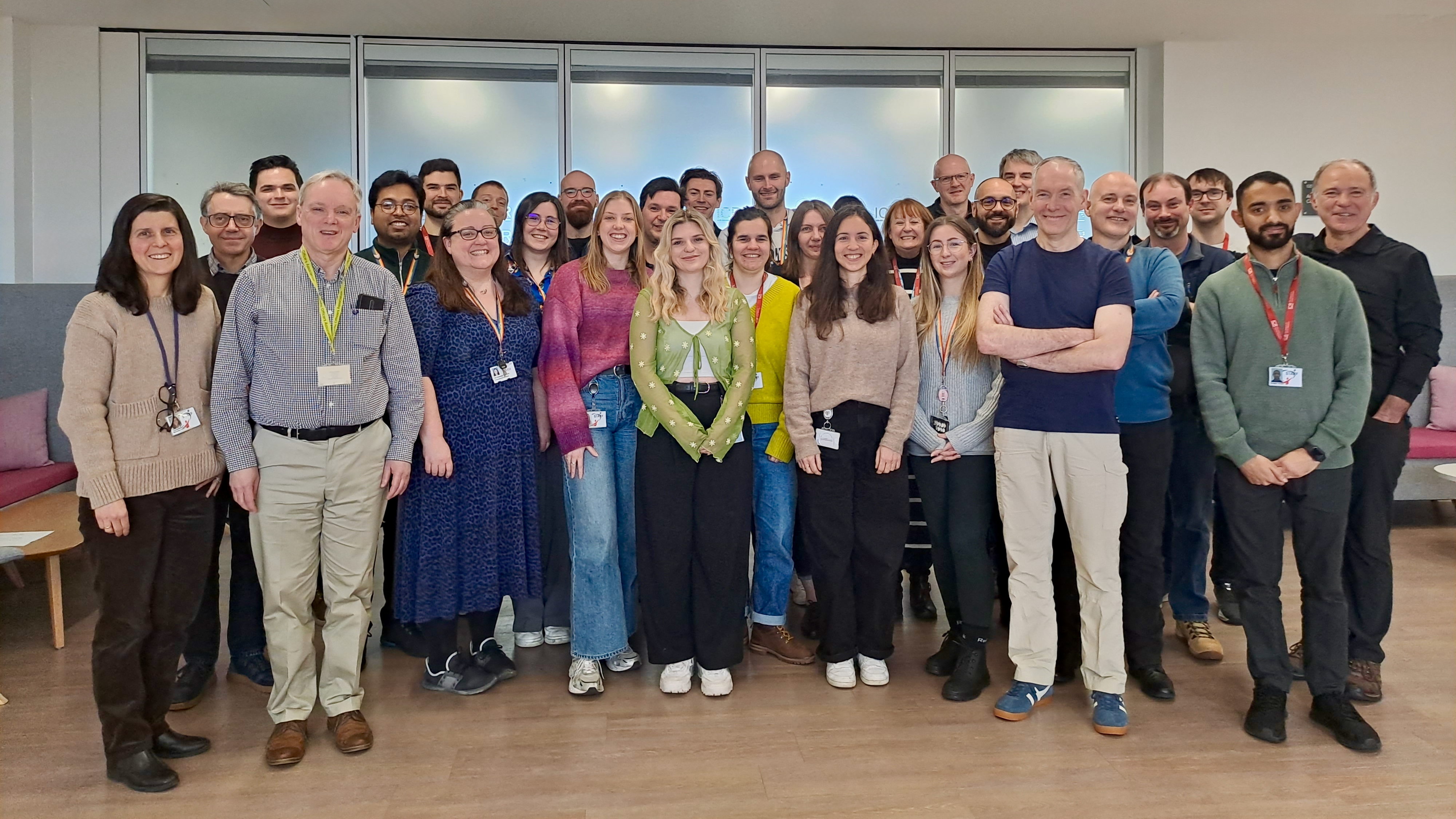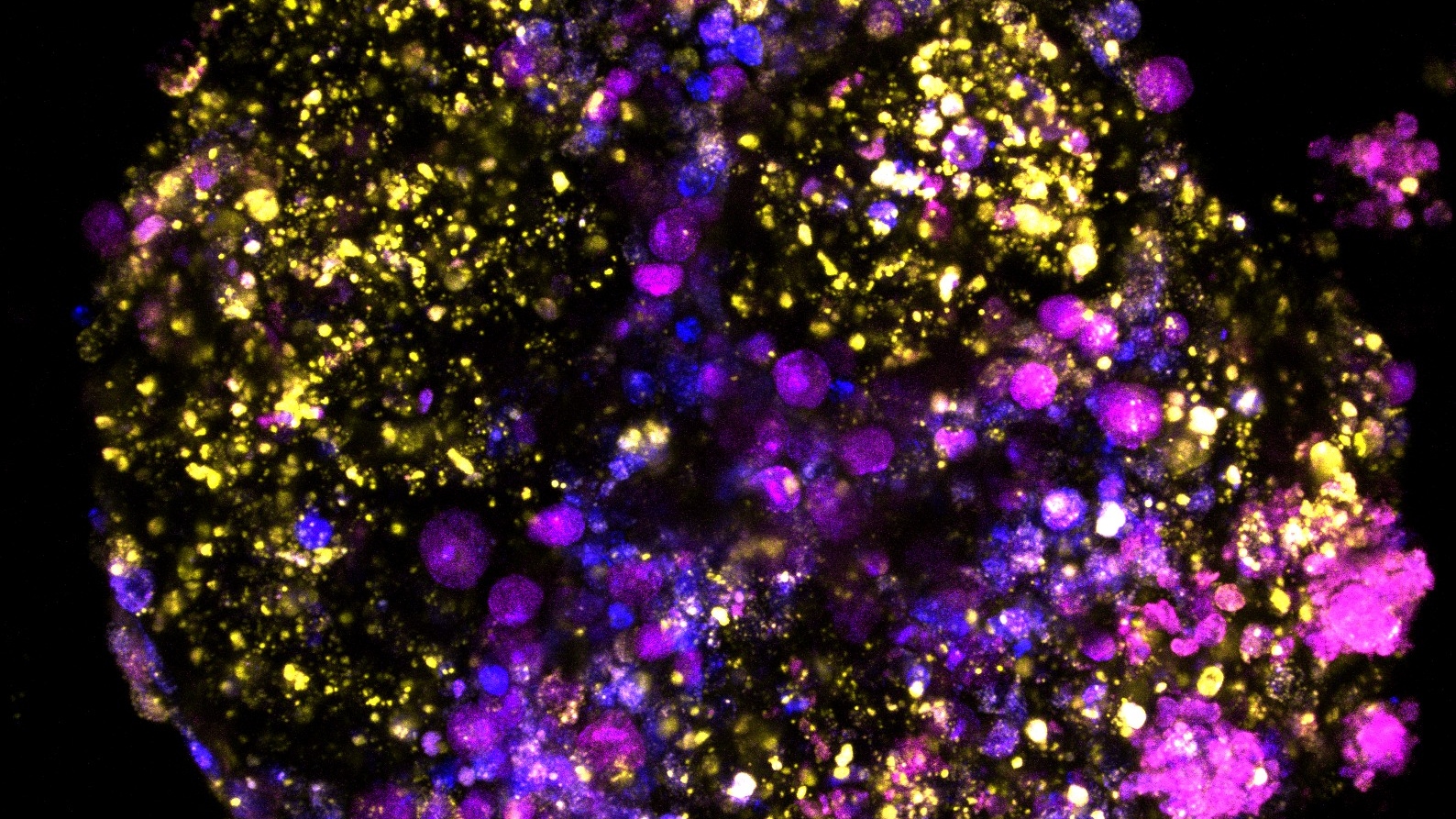Genomics
Advances in the technology to read people’s DNA have made it so much faster and cheaper that we can now read the genetic code of many different genes at once, increasingly by sequencing the entire genome of a patient or their cancer.
Comparing a genome sequence from a tumour cell with one from a healthy cell allows our researchers to pinpoint the genetic changes that are involved in causing cancer, helping us to create new and improved treatments. We can also learn about genetic changes people inherit which may increase their risk of cancer, and this can lead to new ways of preventing the disease.
This page highlights recent news stories, blog posts and videos that concern the use of genomics technologies in cancer research.
Related pages
Recent stories on genomics technologies in cancer research

ICR Centre for Protein Degradation and NEOsphere Biotechnologies announce research collaboration to discover new molecular glue degrader therapeutics
ICR Centre for Protein Degradation and NEOsphere Biotechnologies announce research collaboration to discover new molecular glue degrader therapeutics.
.jpg?sfvrsn=21a64ae3_1)
New cancer test could predict, up to 10 years in advance, when treatment will be needed
Scientists have developed a new test that can decode when someone’s cancer first started growing and how fast it is growing, potentially allowing doctors to accurately predict when a patient will need treatment.
-is-malignancy-of-the-esophagus-cancer-of-the-esophagus-ct-with-contrast.jpg?sfvrsn=70ef5f67_1)
New study reveals how oesophageal cancer adapts to treatment
Researchers have tracked how the most common form of oesophageal cancer and its immune environment change during a standard form of treatment – offering vital clues that could shape future therapies, so they work for longer.

ICR researcher awarded prestigious lectureship for practice-changing breast cancer research
Dr Maggie Cheang, a breast cancer researcher at The Institute of Cancer Research, London, has been awarded the prestigious CL Oakley lectureship.

Scientists find new way to predict how bowel cancer drugs will stop working
Scientists from The Institute of Cancer Research, London, have developed a tool that can predict how bowel cancer adapts to treatment – helping researchers to design new personalised drugs that will keep patients living well for longer.

Scientists uncover clues behind drug resistance in bowel cancer
Scientists have discovered clues which may explain why some treatments stop working for people with bowel cancer – causing around 16,800 deaths in the UK every year.
The study, led by researchers at The Institute of Cancer Research, London, could help clinicians make better use of current treatments and develop more targeted therapies for bowel cancer in the future.
945x532.png?sfvrsn=310c2acf_2)
New protective role of gene frequently mutated in cancer uncovers potential therapeutic target
New research into how cancer develops has uncovered more detail about the importance of the centromere, a region of human DNA that has a critical role in effective cell division.
-mucinous-ovarian-tumour---945x532.jpg?sfvrsn=5e9bb32b_2)
Smarter chemotherapy approach could delay drug resistance in ovarian cancer
Adaptive chemotherapy – a personalised approach to giving chemotherapy – can prolong survival in lab models of ovarian cancer, according to new results published in the journal Cancer Research.